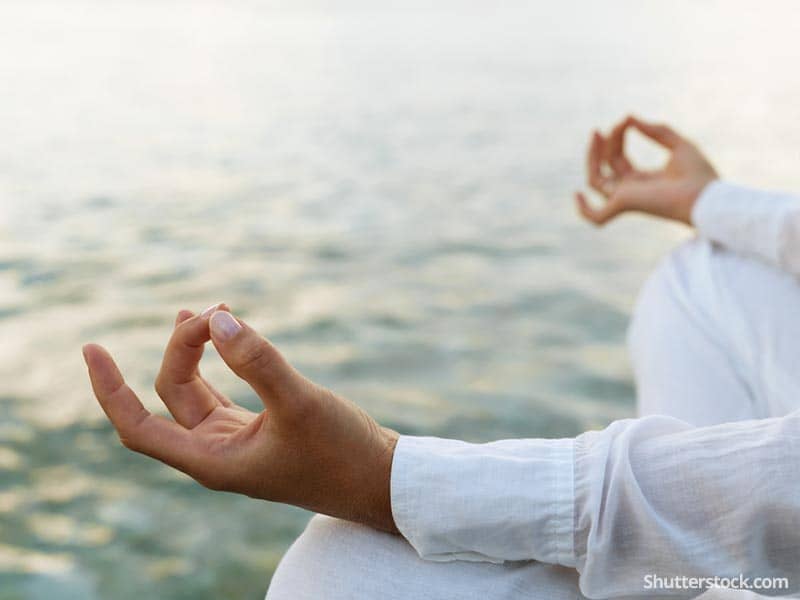What would the Buddha do? No one can really say for sure, any more than anyone can say in truth why God sent death to 3,000 innocent people last week at the hands of a terrorist attack. (I personally consider it the handiwork of man, not God, and that we might do well to look amongst and within ourselves for the causes.)
However, I am sure that the Compassionate Buddha would stop for a prolonged moment of mindfulness and total attention--silent, centered, and present--to pray for all those who have suffered and are suffering, feeling their pain and grief as his own. Buddha would stop and pray for the victims and their families, and all worldwide who suffer and have suffered; he would join Jesus in blessing the peacemakers, while also praying for those who have perpetrated such horrendous crimes.
 What would Buddha do? Buddha would move among the wounded, grief-stricken, and despairing, with gentle healing hands. Buddha might remind us of the fleeting, ephemeral nature of life in all its forms, and that we might profit by turning toward lasting values and the deeper meaning of life so as to help instill in us a sense of the long-range view and the bigger picture.
What would Buddha do? Buddha would move among the wounded, grief-stricken, and despairing, with gentle healing hands. Buddha might remind us of the fleeting, ephemeral nature of life in all its forms, and that we might profit by turning toward lasting values and the deeper meaning of life so as to help instill in us a sense of the long-range view and the bigger picture.
We condemn wanton acts of violence and destruction. The criminal perpetrators and their aides and abettors must be brought to justice, and terrorism erased from our world as an acceptable form of political or social action in any country of the world.
However, I feel quite sure that we should not rush into vengeful retaliatory acts, which will make us into the mirror image of those who have attacked us and could bring more problems rather than provide lasting solutions. The Enlightened One would no doubt advocate restraint, reason, compassion, and understanding in the face of violence and aggression.
What would Buddha do? Buddhism would teach that the enemy and those who harm us can be our best teacher. We can actually benefit now and in the long run by learning to generate sincere feelings of compassion for the perpetrators' negative actions and bad karma. Buddhist wisdom consistently reminds us to recognize how interconnected we all are in this small world, while emphasizing the universal spiritual verity that hatred does not cease through hatred but by through love alone, for lovingkindness and compassion are greater than hatred, greater than death. Twenty-five hundred years ago the Buddha himself said: "Hatred is never appeased by hatred in this world; by love alone is hatred appeased. This is an Eternal Law." (The Dhammapada,Verse 5).
 I think Buddha would ask us to consider the karmic causes, origins, and conditions that have given rise to the kind of hatred and animosity that drove the perpetrators of this criminal act. Buddha's vision encompassed the fact that everything in this universe has a cause, and that nothing happens by accident. This is known as the law of karma, or causation, pointing out that each and every effect has its web of myriad causes and conditions. Individuals or nations, who shortsightedly deny causality by ascribing blame to others, short-circuit the profound introspection necessary to see our own karmic responsibility for whatever befalls us and for our own lives, character and destiny--our karma, in short.
I think Buddha would ask us to consider the karmic causes, origins, and conditions that have given rise to the kind of hatred and animosity that drove the perpetrators of this criminal act. Buddha's vision encompassed the fact that everything in this universe has a cause, and that nothing happens by accident. This is known as the law of karma, or causation, pointing out that each and every effect has its web of myriad causes and conditions. Individuals or nations, who shortsightedly deny causality by ascribing blame to others, short-circuit the profound introspection necessary to see our own karmic responsibility for whatever befalls us and for our own lives, character and destiny--our karma, in short.
The Buddha, as an embodiment of the wisdom of spiritual experience, would exhort us to reflect and explore deeply and conscientiously about what, if anything, can be done to address the causes of those ongoing conditions, and to strive to redress the great imbalances and iniquities we find in our world as well as long for a higher, better spiritual world to come.
I suppose Buddha would note the economic, social, political, and religious differences between we Americans and those who seem to have attacked us, and observe how our own foreign policies, post-modern consumer culture and material lifestyle might contribute to arousing the spite of others with radically different world views and extreme fundamentalist religious beliefs.
The events of September 11, their prelude and aftermath, are a rare and terrible gift in our hands, a broken heart. When our hearts are broken open we may find a moment of vital opportunity. Only out of suffering comes understanding. Great suffering can turn to great compassion and beneficial action. We pray for the healing and turning of the perpetrators of these crimes whose damaged hearts and clouded minds have created vast suffering in the present and into the future. We count on the wisdom, patience, and lovingkindness of the world's leaders, that they may be just and exercise restraint and care in all their actions. Every decision they make should be motivated by compassion.

